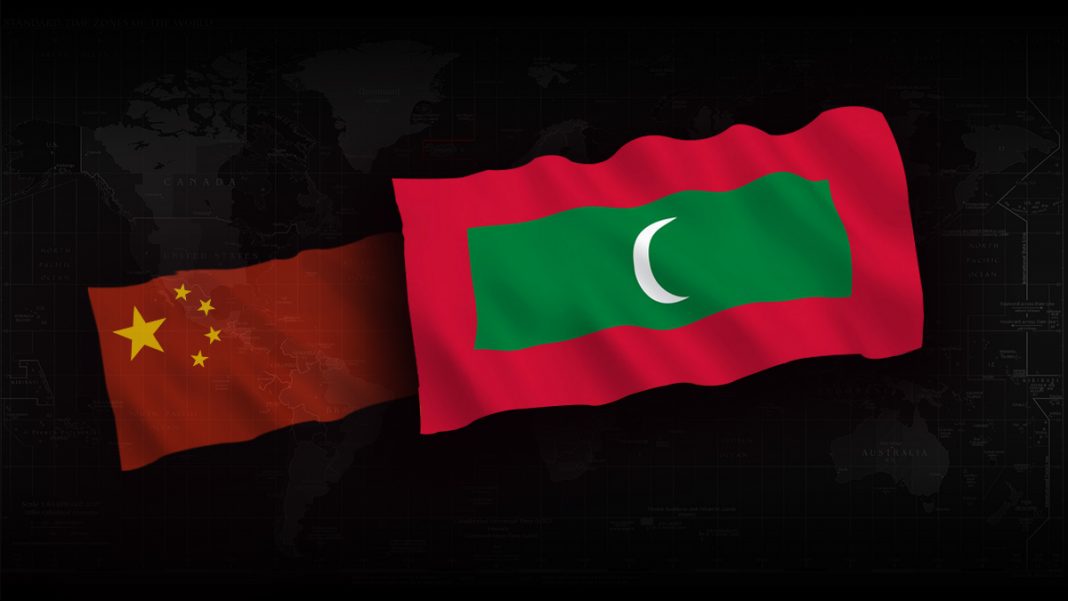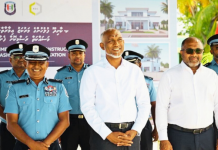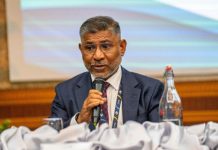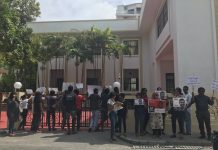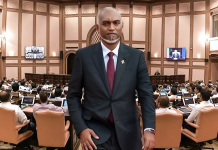The upcoming Maldives’ presidential election on September 9 is unfolding as a competitive race, with incumbent Ibrahim Mohamed Solih facing off against seven challengers. These include Mohamed Muizzu, the Mayor of Malé, from the Progressive Alliance, Qasim Ibrahim from the Jumhooree Party (JP), IlyasLabeeb representing the Democrats, former Defense Minister Mohamed Nazim from the Maldives National Party (MNP), and three independent candidates: FarisMaumoon, Umar Naseer, and Hassan Zameel.
The election’s local dynamics are intertwined with significant international implications. The Maldives’ strategic location along crucial Indian Ocean shipping lanes has attracted attention from competing external powers, primarily India and China. India’s interest arises from geographical proximity, while China’s focus is driven by the Maldives’ strategic maritime position, aligned with routes critical for China’s energy transport and the Maritime Silk Route of its Belt and Road Initiative (BRI).
The previous Maldivian election in September 2018 was widely interpreted as a victory for India and a setback for China. During the prior administration led by Abdulla Yameen of the PPM, the Maldives leaned closer to China by participating in the BRI, pursuing large-scale projects like the China-Maldives Friendship Bridge, and exploring a free trade agreement with China. In contrast, the current Solih administration maintains a pro-India foreign policy aligned with India’s “Neighborhood First” approach, without explicitly positioning itself as anti-China.
The Solih administration engages with Beijing in a friendly yet cautious manner. This cautious stance acknowledges concerns held by New Delhi regarding China’s intentions. There is apprehension that China’s economic influence might lead to “debt traps” for India’s neighboring countries, thereby enabling China to establish a network of military bases encircling the Indian subcontinent—commonly referred to as a “string of pearls.”
The controversial lease of Sri Lanka’s Hambantota Port to China serves as an often-cited example of this trend. Given these concerns, the Solih government is cautious about committing to a free trade agreement with China. The agreement had been passed but not ratified during the Yameen administration. Furthermore, the Solih administration declined participation in the China-Indian Ocean Forum on Development Cooperation held in November 2022. This forum aimed to promote Xi Jinping’s new Global Development Initiative. China perceived Maldives’ non-participation negatively.
Yameen, on the other hand, had based his political comeback on an “India Out” campaign, criticizing the present administration for alleged subservience to India. Despite receiving his party’s nomination last August, Yameen’s 11-year prison sentence on money laundering charges prevents him from contesting the election. In his place, Mayor Muizzu from the PNC faction of the PPM-PNC coalition was chosen as an alternative candidate, reluctantly endorsed by Yameen. Currently, the MDP and the PPM-PNC coalition are the two major political factions. Solih has emphasized that he will not divert his efforts towards other parties.
As a result, the election, which might advance to a runoff on September 30, is likely to revolve primarily around the PPM-PNC and MDP. However, other parties could still wield significant influence in determining the outcome. Consequently, the Maldives faces two potential foreign policy trajectories, depending on the election’s result. If an MDP government retains power, the country will probably continue strengthening ties with India while maintaining cautious relations with China. Solih’s re-election would also align with the interests of India’s ‘quad’ partners—Japan, the United States, and Australia—all of which are broadly focused on managing China’s maritime ambitions in the Indo-Pacific. Worth noting is the recent establishment of permanent embassies by Canberra and Washington in the Maldives, reflecting broader efforts to enhance involvement in the Indian Ocean Region, partly in response to China’s increasing presence.
Alternatively, if Muizzu, positioning himself as a continuation of the Yameen administration, assumes leadership, the Maldives could lean back towards Beijing. Under a Muizzu administration, the country might finalize the free trade agreement with China that Yameen had pursued and potentially prioritize Beijing over New Delhi as a primary development partner.
While a victory for Muizzu might not align with India’s preferences, it’s crucial to consider an important aspect. It’s unlikely that any Maldivian administration, including Muizzu’s, would risk completely isolating itself from India once in power. India has historically been the Maldives’ largest and most influential neighbor, providing economic and security support.
Thus,maintaining positive relations with India remains essential, even for the Progressive Alliance.Even during Yameen’s tenure, the government officially followed an “India First” policy. Many projects that the PPM-PNC coalition now opposes, such as the UthuruThilfalhu dockyard (built with Indian support and alleged by the Progressive Alliance to have military implications), were initiated under agreements signed during Yameen’s time. This suggests that the “India Out” rhetoric could be more of a political strategy than a genuine stance.
However, such political posturing could still negatively impact Maldives- India relations, even if the PPM-PNC coalition moderates its stance after potentially winning the presidency. China and India haven’t been passive observers awaiting the election’s outcome; both have proactively engaged with the Maldives in the lead-up.
In January 2022, China’s Foreign Minister Wang Yi visited the Maldives as part of a tour across the Indian Ocean region. That same year, China’s embassy celebrated the 50th anniversary of diplomatic relations between the Maldives and China, which were established in 1972. On the other hand, India has been actively promoting its ongoing infrastructure projects in the Maldives, including the significant Greater Malé Connectivity Project designed to interconnect all islands in the Greater Malé region. Additionally, India has intensified high-profile visits to the Maldives, exemplified by Defense Minister Rajnath Singh’s recent visit, during which discussions about enhancing regional bilateral cooperation took place.
As India-China relations remain strained due to border disputes and regional rivalries, both countries will closely monitor the Maldives’ presidential elections, eager to gauge how the results might shape the country’s political landscape and the extent of their influence. Nevertheless, the ultimate decision about the future of the Maldives lies in the hands of its citizens, expressed through their votes at the ballot box.

